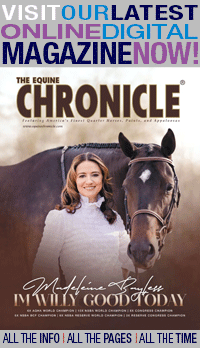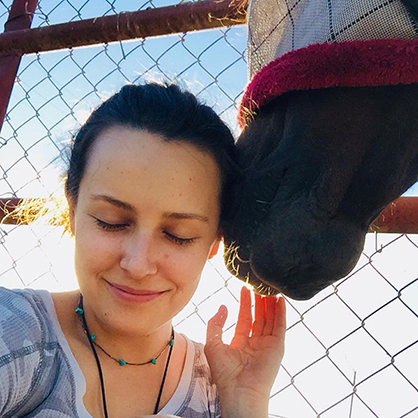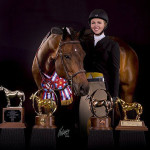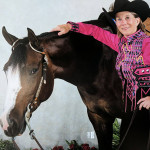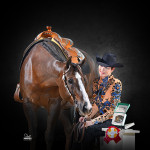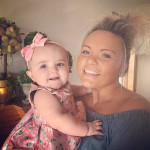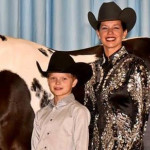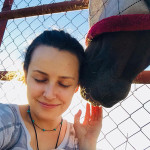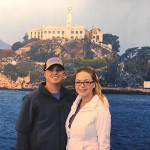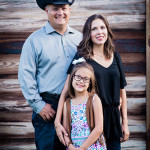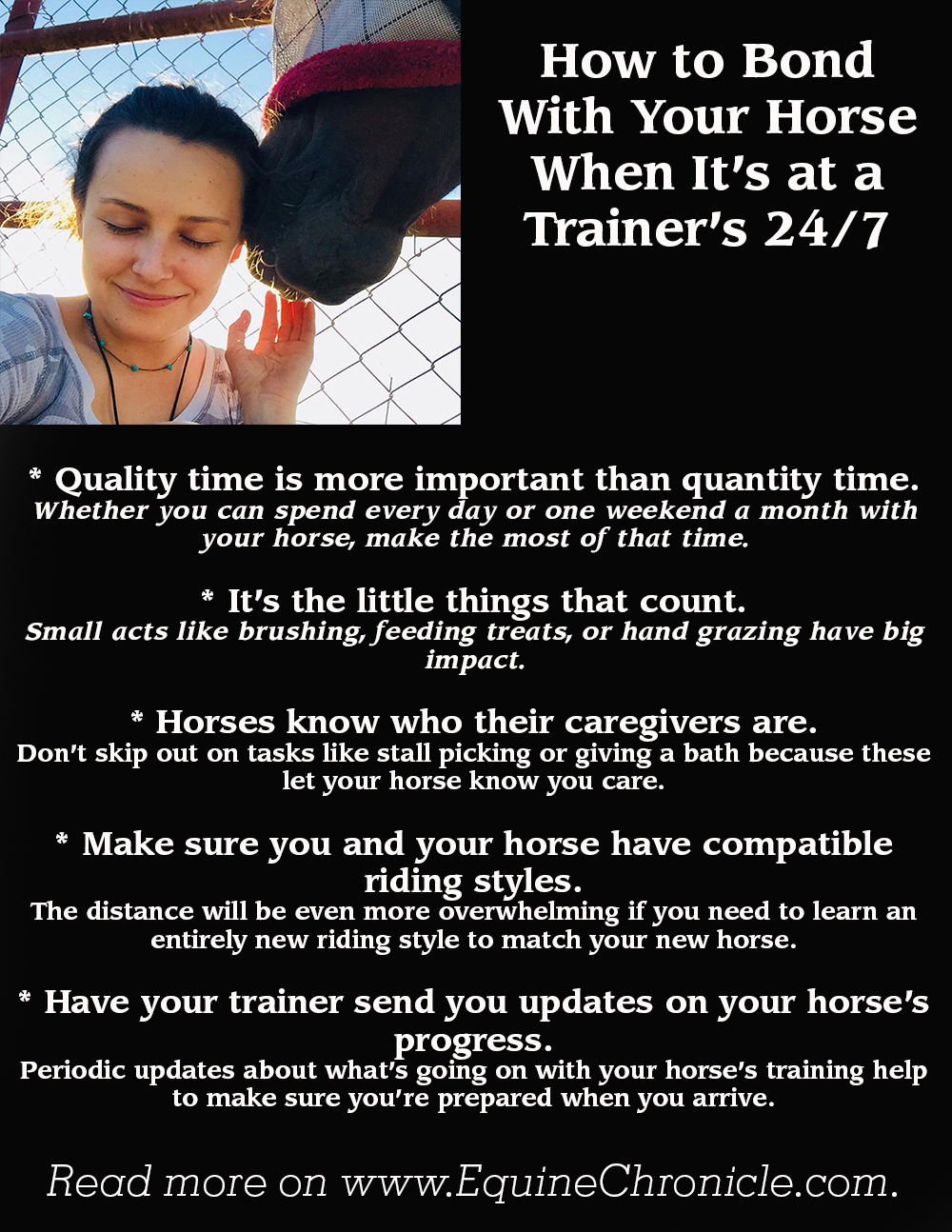Part 2- How to Bond With Your Horse When It’s at a Trainer’s 24/7
By: Brittany Bevis
Just a few days ago, when Part 1 of How to Bond With Your Horse When It’s at a Trainer’s 24/7 hit the press, our inboxes and social media sphere literally BLEW UP with response from horse owners across the country who related personally to the struggles that arise when you don’t have the luxury of keeping your horse in your own backyard. Whether it’s the result of a relocation due to a new job, a busy college schedule, or the desire to have your horse in the care of the best trainer you can find, regardless of physical location, our readers all agree on several key points that are essential to creating a horse/rider bond.
We received so much input that we decided to do a second installation. Scroll below to check out Part 2! Be sure to scroll to the bottom of the page for a recap of Part 1 and 2 with a take away list that you can use in your daily barn life.
(By the way, this article topic was proposed by an EquineChronicle.com fan! If you’d like to submit a great topic for consideration, email B.Bevis@EquineChronicle.com)
The Exhibitor’s Opinion:
Emma Graf– “Although my horse is boarded at my trainer’s facility, I make a point to see him multiple times a week. I think that a bond between the rider and horse is really important; so, sometimes when I go to the barn, I don’t ride, but I spend time developing this bond. This can be by grazing, grooming, or just spending time together. Even though he doesn’t live on my property, I still try and spend time with him as often as I can. I usually try to ride or see my horse between three and six times a week. Lucky for me, he’s close by, so I don’t have to go very far. My sister and I are the only ones who ride and show him, so we make it a priority to get as many rides in as we can.”
“I try to have a scheduled time to ride with my trainer once a week, more in the height of show season, and then a few other times on my own. My dad and I almost always haul my horse to the show. I love having the experience to take care of my horse during transport. Lucky for me, my trainer’s facility is about five miles from my house. This certainly makes it much more convenient to ride and care for my horse. I feel as if the bond that I have with my horse is strengthened because I have the opportunity to work with him, as well as my trainer, and spend time with him when I’m not demanding anything. I value this relationship with my horse, because I feel like we’re able to work better as team.”
Debby Brehm– “I think it’s very important to bond with your horse. Since I live in Nebraska and my pleasure horse is with Rusty Green Show Horses in Aubrey Texas, I can’t spend quantity time with my horse, so I make sure to spend quality time with her when I can. I always give Dory treats after a good ride in a class or after a good practice to reward her for a job well done. (I must say that my trainers don’t always appreciate me giving out those treats!)”
“It helps if you have a horse that likes people, as some aren’t as social as others; but, fortunately, in my case, Dory loves the attention. Talking to the horse, petting and kissing the horse, brushing the horse, feeding the horse, even cleaning the stall when the horse is in it helps to develop that bond. I like to use a rather sing-song pitch too when I talk to Dory, and she recognizes the sound and always knows it’s me when I see her. I do try to fly to Texas once a month to practice, and I arrive at the show a day or two before I show in order to practice as well as to build on that bond. Most importantly, horses know if you like them! Show them kindness, and they will respond the same to you.”
Karen Gillings– “I’m an amateur select all-around competitor in AQHA/NSBA and have been blessed with my equine buddy, HRZ Make Mine Gold. for the past two years. My trainers, Will and Elizabeth Knabenshue, live in Whitesboro, Texas, and I live in Albuquerque, New Mexico. Although geography limits my riding time to the show setting (arriving early to practice!), we try to participate in eight to nine shows per year, some of them spanning a week or more.”
“First, I truly credit my trainers with knowing who I am and how I ride, so that when it came time for me to look for a new partner, they knew going in what traits would fit and what would not. For example, it would not have worked to put me on a green 2-year-old, when I wanted/needed a been there/done that horse. When I test rode my horse for the very first time, I felt my whole body relax, as if there was just that fit. I trust him to take care of me, he feels that trust, and we click!”
“Each time I climb aboard, I try to learn the details about how he responds to each event. I talk to him constantly when I ride—even during competition—and he truly listens to those cues. By trying different techniques, I have learned how he responds in the most relaxed fashion, and when he is relaxed, we both perform better. As an example, he is first and foremost, a Western horse. However, I also, enjoy Hunt Seat Equitation. So, while direct contact is required for this event, I know not to have too tight a hold on his mouth. It’s all about treating each ride as an opportunity to learn my buddy and feeling his frame of mind on that particular day.”
Amanda Wallinger-Rowan– “After having a baby myself, I get my horses to gain my trust and form a bond with me in a much different way as it was in the past. The secret I have found to be successful is to treat the horses like my toddler daughter! I tell them how great they are, over and over, and I sneak into their stalls and rub their bellies and itch them, but most importantly TREATS! I probably go through two bags of treats for the longer shows, at least! I sneak treats when the trainers aren’t looking, that way the horses look forward to seeing me. I try to clean their stalls or feed them when possible, because I feel like animals can tell who cares about them by who is the caregiver and who loves them. It’s important for them to see you’re not only spoiling them but caring and protecting them.”
“As a youth, I got some advice I will never forget! I had a filly rear up and get loose on me and Denny Hassett, being the wonderful guy he is, came up to me as I was crying and scared. He said, ‘Honey we need to get that horse together. This is the only time that horse sees you, and you need to show her you’re her owner and you’re here to protect her and help her so you form a bond.’ Forming a bond isn’t always the first thing you think of, but sometimes the struggles you go through together.”
“With a busy work schedule it’s hard to get to see my horses a lot. But, at every show I try to show up at least a day early, more if possible, so I can just spend time with the horses walking them around and bonding. My horses truly are some of my best friends! I don’t get to the trainers nearly as much as I want. I would be there every weekend if possible! But my trainers do an amazing job, so the horses are always in a good mood at the shows and ready to go, which helps my limited time with the horses!”
Vanessa Froman– “I think a lot of the bond comes with choosing the horse that’s the best match to my personality. It’s a lot like dating! I have a type that just clicks with me. My trainer, Jenell Pogue, knows which horses I will click with and which ones I will not connect with as much. From there, it’s a lot about quality time spent together. I’m a talker. I talk to my horses because, honestly, they are so much better than humans. With my new horse, Becky, I spent a lot of time with her during Congress just talking to her in her stall while I would massage her withers. She loves to be massaged and brushed on. It’s one of her love languages. That has helped start our bond, and now I do it every week when I go ride. She’s really starting to love on me and trust me.”
“But, my other mare, Chloe, has a tougher outer shell, and is not as easy to crack. She’s a strictly business type of girl and isn’t big into the lovey dovey stuff. She likes to test people to see if they’re tough like her. We always joke that she’s a great judge of character. If she doesn’t like you, it’s usually for a good reason! I had to prove myself to her, and it took a while. Plus, we bonded during a sad time in my horse career after her full brother tragically died. It took us both time to trust each other and open ourselves up to the risk of being hurt again. But, once I discovered that one of her love languages is licorice, just like me, we became soul sisters! She knows when I come into the barn now and starts banging on the stall door until I give her attention.”
“My oldest son, Collin, and I try to drive out once a week to practice with Jenell. It’s a five hour drive round trip, if roads are good. I’ll pick him up at 2 pm after school and drive straight to Jenell’s. We ride and work on Showmanship, and then he goes up to the house to shower and get ready for bed. Then, he gets to have McDonalds as a special treat. He does his homework in the car ride there. When we get home around 11 pm, I wake him up to go brush his teeth and get to bed because he has school the next morning. We also like to take advantage of days off of school. Winter time in the midwest sometimes adds an extra element of surprise to our plans, but we make it work.”
Gabrielle Lofton– “I truly believe that the horse and rider are teammates, and it takes a team effort to create success. I’ve lived long distance from my show horses for years now. Though it isn’t really an ideal situation, it’s just what you have to do sometimes to compete at this level. Usually, I spend a weekend when I go ride, and that weekend is completely based around my horses, taking everything slowly, from the grooming process to saddling and putting the bit on. Obviously, the bond gets deeper quicker and in a different way when you’re able to spend a lot of time with your horse, but I have also come to learn that it’s not just about the amount of time, but the quality of time. For instance, the time I spend with my horse walking to the arena is really a sacred time for us, especially if I haven’t seen my horse in a while. It’s really an opportunity to reconnect with them. I do the same thing every time I get on to ride. The first few minutes of our warm-up is just spent walking around the arena, petting them, or in a light jog just to check-in with each other. Horses are intelligent, and I have a few horses that definitely give me the cold shoulder when I haven’t seen them in a while, so I always approach these situations calmly and understanding that they have every right to think, ‘Who the heck are you?'”
“Also, you really have to lower your expectations. Being long distance from your horse means that you aren’t around to see or really experience their milestones. It’s very common that the next time you go to ride, your horse may feel completely different. They may move differently, steer differently, etc. This is especially true if you have a young horse that’s still learning, so lower your expectations of how things are going to go. Also, drop the pride, because your horse lives in training and you, as a rider, may not.”
“I’ve gone months without seeing my horses. Usually, I try to make it out once a month, but sometimes that once a month is because of a show. Mostly, my practice time is spent at a show, which isn’t bad. You just have to keep it low stress, which can be difficult in some situations. I really see a difference in myself with my horses if I get a lot of short rides done in a single day, so that’s achievable at a show, or at home. When it’s time to really make a breakthrough, I definitely schedule a weekend to go ride.”
“Honestly, location hasn’t ever really affected my decision of trainers. Yes, you definitely weigh-out the pros and cons, and some locations really aren’t justifiable, but my main concern is the caliber of care and training.”
“I’ve never owned a horse that didn’t recognize me when I walked down the barn aisle, no matter how long it’s been since I last saw them. Never forget the little moments; building and sustaining a relationship with your horse is no different than any other relationship you have with another human! Those moments spent brushing, bathing, combing their mane and tail, and hand-grazing, are the valuable moments! These moments are not just beneficial for your bond, but also for your horse’s health! When you know their common habits and tendencies, it makes it a lot easier to recognize a problem when it starts to arise.”
The Trainer’s Perspective:
Austin Gooding– “When I have a client that I know isn’t going to ride at home much, I really put a lot of emphasis on that horse matching the client’s style of riding so I’m not trying to teach them how to ride their horse and completely change the rider’s style too. We’ve had very good luck with this type of situation, and it helps too if the rider has had other horses with us so they have a good idea of how we do things. Really, a lot of the circuits have gotten so long that there’s a lot of riding time at the shows.”
Elizabeth Knabenshue– “As a trainer living in Texas, the major of our clients live out of town; therefore, helping them maintain a bond with their horses is a key aspect of our business. First and foremost, we keep constant communication with our clients. Even if they live hundreds of miles away, they know what’s going on with their horses. This includes letting them know about vet appointments, routine maintenance, and anything happening that may be good, bad, or new, in their horse’s training. It’s also fun to send quick snapchats or videos of their horses on the occasional basis.”
“As far as showing goes, we prefer to go to longer shows, especially with out of town clients. This gives them the time they need to bond and catch up with their horses. There are usually days before the show during which we can ride. Then, showing multiple days helps as well. Not having ridden for a while doesn’t actually pose as big of a problem as some people think. We make it a point at the end of each show to discuss the goods and the bads of each show. When we get home, as trainers, we can work on the horse and fill in the holes where maybe improvement or changes need to be made. Then, when we get to the next show, the horse is ready and the client knows the expectations. They can jump on board knowing that the horse will help them learn. We actually really like this method and find that it works really well.”
“All in all, living miles away from your horse isn’t as scary as it may sound. As long as you have someone you can trust and communicate with on the other end, and have a plan, there are really some real positives to it. In a lot of ways, it’s more productive being able to block in long periods of time with your horse than constantly running in and out of its life riding quickly and worrying about the next thing. Especially, if those periods of time are with someone who has a good eye and is good help, it makes your riding more productive.”
Brooke Victoria Ingstad– “I’ve always been really lucky that my horses are only 10 minutes away from my house! Aside from living in Texas for college and a couple of years after, I’ve always had my horses close at our barn. I feel that this has been an advantage because it has allowed me to create a bond with my teammates on a daily basis. Not only can I ride a lot, but I’m also able to go out and spend time on the ground with my horses- something I believe really reinforces the bond. I often go out, when I don’t have a lesson scheduled, to simply give my horses treats and just to spend time with them. I usually fly into events a day or two before the show begins to practice! Overall, I love being able to spend so much time with my horses!”
Share the following graphic on social media or print it out as a reminder of the things you can work on to develop a strong horse/rider bond!
